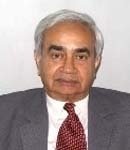Criminals and Governance
12 Jun, 2004 · 1409
PR Chari says that the will of the people must be held supreme even if they choose to elect criminals to Parliament
There is a gag about two individuals engaging in intellectual combat. Both were unarmed. The Indian Parliament has witnessed a theatre of the absurd over the last week, with the two leading political alliances, NDA and UPA, swapping charges and counter-charges against each other of including “tainted” [read criminal] Ministers in the present and past Cabinets. Neither alliance could, in truth, claim to be untainted. Laloo Prasad Yadav is a shining (no irony intended) example of tainted-ness in the UPA Cabinet, and is facing criminal charges pertaining to the embezzlement of State funds, whereas George Fernandes’s near and dear were caught on tape in a sting operation accepting a bribe to obtain a defence contract. Therefore, Laloo and George can engage in moral combat. Both are fully unarmed.
There is more. Another newly-sworn in Bihari Minister, Taslimuddin, is involved in some ten criminal cases including dacoity (armed robbery) and rape. The NDA has rightly criticised the Prime Minister for inducting this worthy into his Cabinet. This has been countered by the UPA pointing out that L K Advani (former Home Minister), and Murli Manohar Joshi (former Human Resources Development Minister) were being prosecuted for inciting the demolition of the Babri Masjid while continuing to occupy Cabinet posts in the NDA government. Apparently, this was part of a political struggle, and not a criminal activity. A pyrrhic battle is therefore being fought within and without Parliament; even Marc Antony has been harnessed out of Shakespeare to assist in this debate. Manmohan Singh and Atal Behari Vajpayee have been described as “honourable men”, implying that, like Brutus, they joined hands with other “honourable men” to stab the Indian polity in the same manner as the Roman conspirators stabbed Caesar.
It is not illegal, incidentally, for Parliamentarians being prosecuted on criminal charges to be made Ministers, unless they become disqualified under the provisions of law after conviction. There is, of course, the moral dimension to this question. Should individuals facing criminal charges be made Ministers? What is the message this would convey to the world and to the Indian people? What message will it convey to the administration and governance processes down the line? Faced with these dilemmas, arising out of political compulsions, Prime Ministers, past and present, have repeated the nostrum, “the law will take its own course.” But this is exactly what does not happen. Tainted Ministers use their authority to absolve themselves of the criminal charges being pressed against them by the time-honoured processes of delaying the investigations, suborning witnesses, fudging the records and/or arranging their disappearance. Complainants and investigating agency officials can also be more successfully intimidated by Ministers into ensuring that nothing comes out of the cases launched against them.
Only a vigilant citizen’s body can ensure this does not happen and that people are spared the spectacle of Ministers standing in the dock defending themselves against criminal charges in a public trial. But it could be argued with some felicity that the people deserve the government they elect, criminal Ministers included. The election law now requires all candidates to declare their assets, but also the cases pending against them, along with their previous convictions, even if these do not disqualify them from contesting. It the people still vote for criminals to become their representatives, how can anyone object to their becoming Ministers? Several reasons have been given to explain why criminals get elected like unavailability of credible non-criminal candidates, pulls and pressures of caste and communal politics, use of money and muscle power and so on. What needs greater recognition are the demands of pragmatism that weighs heavily upon the people, which can be framed in the rhetorical questions, “What is the use of having a representative in the legislature who cannot get our work done? Isn’t it better to have a criminal who can get our work done, rather than a saint who cannot?” And “work” can include facilitation like expediting matters in a government office or ensuring that rapacious officials do not have to be bribed. “Work” could also include sub-legal activities like getting a troublesome tenant out of one’s house without tedious litigation, fetching back a runaway son or wayward daughter very discretely, or beating up the neighbourhood bully.
Caesar’s wife should be above suspicion. In the Indian political system Caesar’s wife could have fought her case up to the Supreme Court. But the Latin saying goes, Vox populi, vox Dei, “The voice of the people is the voice of God.” It would be blasphemous to indict the people’s choice of their representatives. Once elected, they can become Ministers. The debate in Parliament should focus on preventing this sorry sequence of events from occurring rather than indulging in fruitless blame throwing without coming to grips with the problem. Is this possible?


